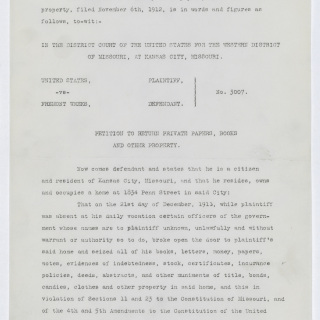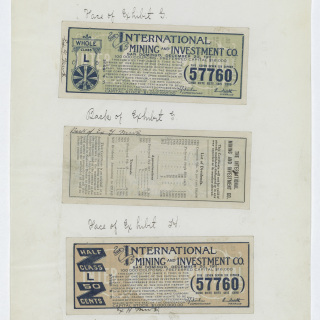Exclusionary Rule 1914
In 1911, police broke into the house of Fremont Weeks and seized lottery tickets and other items. He was convicted of illegally engaging in the lottery, but appealed his case. He argued that his property was seized without a warrant, in violation of his Fourth Amendment right against “unreasonable searches and seizures.”
In Weeks v. United States, the U.S. Supreme Court unanimously agreed with Weeks, finding that use of unlawfully seized evidence in the courtroom is unconstitutional. This came to be known as the “exclusionary rule,” which is still used today. Justices wrote, “While the efforts of courts and their officials to bring the guilty to punishment are praiseworthy, they are not to be aided by sacrificing the great fundamental rights secured by the Constitution.”

